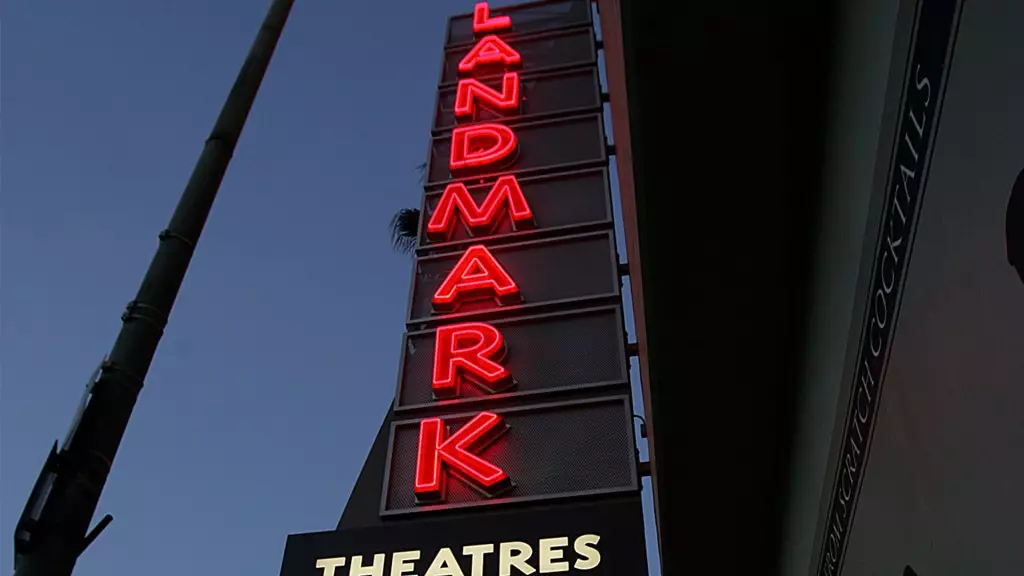Landmark Theatres has stood as a hallmark for independent cinema in the United States, a chain that once thrived by showcasing unique films that often went unseen in mainstream theaters. However, like many in the cinema industry, Landmark faced unprecedented challenges during the COVID-19 pandemic. This turbulent period not only strained finances but also compelled a shift in operational strategy to attract a returning audience. The latest developments indicate a bold, reinventive plan spearheaded by newly-promoted CEO Kevin Holloway, looking to breathe fresh life into key locations, while retaining the essence of what made Landmark special.
Metro Locations Undergo Significant Remodels
Landmark Theatres has announced plans for extensive renovations at three pivotal sites: Bethesda Row in Maryland, Lagoon in Minneapolis, and Kendall Square in Cambridge, Massachusetts. This initiative signals a broad commitment to evolve alongside audience expectations and re-establish the brand as a cultural linchpin in each community. The renovations will incorporate a modern aesthetic while respecting the historic characteristics of these venues, creating an inviting space that resonates with both loyal patrons and new visitors alike.
The modernization efforts are not merely superficial; they include practical upgrades such as luxury recliner seating and advancements in sound and projection technology. The iconic Bethesda Row location, for example, will unveil a new LED marquee and a lobby design infused with historical elements, all set to attract film aficionados and casual moviegoers. Meanwhile, the complete transformation of the Lagoon Theatre includes eye-catching hand-painted murals and a sophisticated bar, enhancing its allure as a destination for social gatherings, not just film viewings.
Kevin Holloway’s Vision for the Future
Holloway’s ascension from president to CEO embodies a pivotal moment for Landmark, marking a strategic transition in leadership at a time when many cinema chains are grappling with the aftermath of the pandemic. With robust experience from esteemed brands like Alamo Drafthouse and Pacific Theatres, Holloway brings a wealth of knowledge to the table. His appointment is not merely a shift in title but a beacon of hope for revitalizing Landmark’s identity and operational philosophy.
Holloway is committed to adapting Landmark’s offerings in response to the evolving entertainment landscape, stating, “I look forward to building upon the work we’ve done to adapt the Landmark brand to the evolving marketplace.” His focus on maintaining the integrity of Landmark’s cultural significance while innovating is a balancing act that could redefine the theater-going experience.
Financial Hurdles and Strategic Partnerships
While the ambitious remodels are on the horizon, questions linger about the financial mechanics behind these changes. Landmark’s relationship with its landlords seems pivotal, as it appears they are contributing to the funding for the projects. This collaborative effort not only reduces the financial burden on Landmark but illustrates a broader industry trend where partnerships are crucial for survival and growth in a challenging market.
It’s important to acknowledge the backdrop of distressing legal troubles facing Landmark’s owner, Charles Cohen, particularly concerning a substantial loan default. While headlines around court proceedings and debt accumulation might sound alarming, they also highlight a potential sweeping of the slate clean through asset restructuring. This financial shake-up could allow Landmark to focus on its core strengths rather than be bogged down by past encumbrances.
Redefining the Cinema Experience
As Landmark embarks on this journey of renovation, it signals a broader intention to redefine what a theater can offer in today’s entertainment ecosystem. The push for premium real estate in the cinema landscape sets the stage for a competition not only with other cinema chains but also with home entertainment options.
By bringing in upgraded amenities and enhancing the social experiences tied to movie-going, Landmark can potentially attract a diverse demographic, especially younger audiences who are often enticed by unique, immersive experiences. The emphasis on developing venues into community hubs could be the key to recapturing the loyalty of filmgoers in a post-pandemic world.
In a decade marked by obstacles for the cinema industry, Landmark Theatres is poised at the threshold of transformative change, with its sights set on leveraging innovation, heritage, and executive leadership to reclaim its position as a beloved local theater chain. With the imminent renovations, the hope is to not just evolve but thrive, once again becoming synonymous with the rich tapestry of independent and culturally significant cinema.

